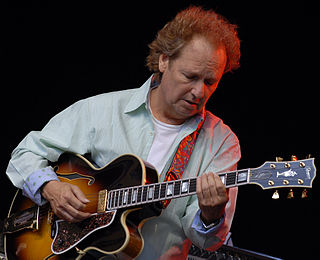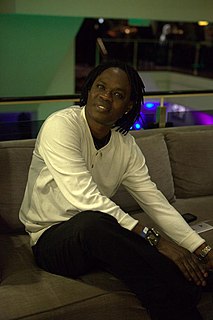A Quote by St. Lucia
I think there's no way of avoiding the South African or African influence from coming into my music, just because I spent 19 years of my life there. Being a kid, my early musical experiences were there.
Related Quotes
We do not have a South African as a member of the African Commission. The President of the Commission comes from Mali, the Deputy comes from Rwanda and then we have got all these other members, ordinary commissioners. There is no South African there. And the reason, again, for that is not because we didn't have South Africans who are competent.
Think bigger than society lets you think. And find mentors. My life is filled with people who knew me when I was 19 and had a horrible South African accent and bleach-blond hair and who believed in me in a way that was brutal. They were just unbelievable and consistent and smart. Find mentors who, every time you're with them, you're being schooled. Just absolutely schooled.
Cultures, when they meet, influence one another, whether people like it or not. But Americans don't have any way of describing this secret that has been going on for more than two hundred years. The intermarriage of the Indian and the African in America, for example, has been constant and thorough. Colin Powell tells us in his autobiography that he is Scotch, Irish, African, Indian, and British, but all we hear is that he is African.
Because I know that the early Greeks and Romans and the early Europeans at that age did not see racism as we see it now - because racism was created to justify slavery to build the capital for capitalism - and back in the day they respected talent over race. We had an African Pope in the late 5th century, we had an African Emperor of Rome, and early church Fathers were black.
A number of African countries came to us and said, we request that South Africa should not field a candidate, because so many other African countries wanted to, and, in any case, South Africa would continue to play a role in terms of building the African Union, and so on. And they actually said, please don't field a candidate, and we didn't. As I have said, it is not because we didn't have people who are competent to serve in these positions.
Well, Smoke n' Mirrors has very much a world music flavor and it doesn't park itself in one country. It borrows heavily from the Brazilian angle, which is dear to my heart, and I recorded several albums with that flavor. Probably even more so than the Brazilian flavor, there's an African, South African and West African influence and on a couple of other tracks there's some Latin flavor and there's some Indian tables on one track, all centered around my jazz guitar and acoustic guitars, and very much a Lee Ritenour sound.
I did not like that name "world music" in the beginning. I think that African music must get more respect than to be put in a ghetto like that. We have something to give to others. When you look to how African music is built, when you understand this kind of music, you can understand that a lot of all this modern music that you are hearing in the world has similarities to African music. It's like the origin of a lot of kinds of music.
Michael Jackson fundamentally altered the terms of the debate about African American music. Remember, he was a chocolate, cherubic-faced genius with an African American halo. He had an Afro halo. He was a kid who was capable of embodying all of the high possibilities and the deep griefs that besieged the African American psyche.

































